-
×
 12 Dimensions of Mastery (Lifebook Challenge)
1 × $92.00
12 Dimensions of Mastery (Lifebook Challenge)
1 × $92.00 -
×
 Deep Resonating Aums - Higher Balance Institute
1 × $15.00
Deep Resonating Aums - Higher Balance Institute
1 × $15.00 -
×
 Advanced EKG Assessment - Cathy Lockett
1 × $30.00
Advanced EKG Assessment - Cathy Lockett
1 × $30.00 -
×
 5 Diamond Self-hypnosis SuperPack – Steve G Jones
1 × $144.00
5 Diamond Self-hypnosis SuperPack – Steve G Jones
1 × $144.00 -
×
 10 Steps to Greater Confidence and Self-Esteem - Alexis Meads
2 × $42.00
10 Steps to Greater Confidence and Self-Esteem - Alexis Meads
2 × $42.00 -
×
 Rachel Rodger - Small Business Bodyguard
1 × $43.00
Rachel Rodger - Small Business Bodyguard
1 × $43.00 -
×
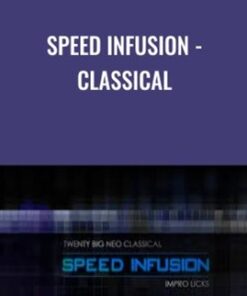 Speed Infusion - Classical - Claus Levin
1 × $31.00
Speed Infusion - Classical - Claus Levin
1 × $31.00 -
×
 Epic Sequel Fous 4×2
1 × $83.00
Epic Sequel Fous 4×2
1 × $83.00 -
×
 Advanced Ancestral Clearing December 2015 - John Newton
1 × $43.00
Advanced Ancestral Clearing December 2015 - John Newton
1 × $43.00 -
×
 Pain Management in the Elderly - Steven Atkinson
1 × $35.00
Pain Management in the Elderly - Steven Atkinson
1 × $35.00 -
×
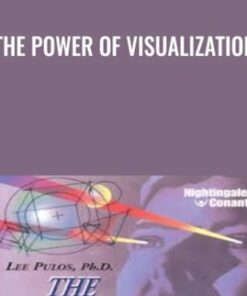 The Power of Visualization - Dr. Lee Pulos
1 × $13.00
The Power of Visualization - Dr. Lee Pulos
1 × $13.00 -
×
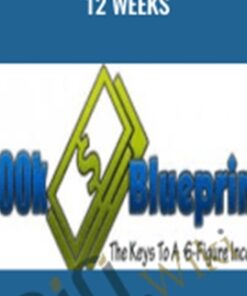 100K Blueprint 2017 – 12 Weeks – Dan Dasilva
1 × $160.00
100K Blueprint 2017 – 12 Weeks – Dan Dasilva
1 × $160.00 -
×
 [BIG Collection Real Estate] Real Estate Web Academy – Great Real Estate Giveaway
1 × $88.00
[BIG Collection Real Estate] Real Estate Web Academy – Great Real Estate Giveaway
1 × $88.00 -
×
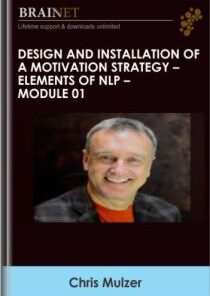 Design and Installation of a Motivation Strategy – Elements of NLP – Module 01 - Chris Mulzer
1 × $59.00
Design and Installation of a Motivation Strategy – Elements of NLP – Module 01 - Chris Mulzer
1 × $59.00 -
×
 Affiliate Millionaires 3.0 2017 – Greg Davis
1 × $139.00
Affiliate Millionaires 3.0 2017 – Greg Davis
1 × $139.00 -
×
 Aidan Booth & Steve Clayton - 100k Factory - Ultra Edition
1 × $137.00
Aidan Booth & Steve Clayton - 100k Factory - Ultra Edition
1 × $137.00 -
×
 Cardiopulmonary Therapy for the Rehab Professional: Therapeutic Interventions for All Aspects of Cardiac Care - From ICU to Outpatient - Cindy Bauer
1 × $84.00
Cardiopulmonary Therapy for the Rehab Professional: Therapeutic Interventions for All Aspects of Cardiac Care - From ICU to Outpatient - Cindy Bauer
1 × $84.00 -
×
 2-Day: Medical Screening and Differential Diagnosis Intensive Training Course - Shaun Goulbourne
1 × $180.00
2-Day: Medical Screening and Differential Diagnosis Intensive Training Course - Shaun Goulbourne
1 × $180.00 -
×
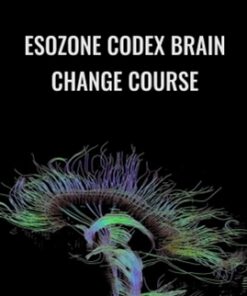 Esozone Codex Brain Change Course - Command Z
2 × $33.00
Esozone Codex Brain Change Course - Command Z
2 × $33.00 -
×
 Exhilarate - The Ultimate Zumba Fitness - Zumba Fitness
1 × $18.00
Exhilarate - The Ultimate Zumba Fitness - Zumba Fitness
1 × $18.00 -
×
 2-Day: Rapid Response: Master the Critical Signs and Symptoms that Patients Provide - Rachel Cartwright-Vanzant
1 × $95.00
2-Day: Rapid Response: Master the Critical Signs and Symptoms that Patients Provide - Rachel Cartwright-Vanzant
1 × $95.00 -
×
 Kitchen Medicine - Tamara Wolfson
1 × $94.00
Kitchen Medicine - Tamara Wolfson
1 × $94.00 -
×
 Fiebel - LPA Logical Price Action The Complete Course
1 × $115.00
Fiebel - LPA Logical Price Action The Complete Course
1 × $115.00 -
×
 Millionaire Challenge LIVE Replay and Legacy Collection – Jon Mac
1 × $94.00
Millionaire Challenge LIVE Replay and Legacy Collection – Jon Mac
1 × $94.00 -
×
 16 Seminar Home Study Course – Lawrence G. McMillan
1 × $60.00
16 Seminar Home Study Course – Lawrence G. McMillan
1 × $60.00 -
×
 101 Practical Strategies for the Treatment of GAD, Panic, OCD, Social Anxiety Disorder, Phobias and Insomnia - Jennifer L. Abel
1 × $124.00
101 Practical Strategies for the Treatment of GAD, Panic, OCD, Social Anxiety Disorder, Phobias and Insomnia - Jennifer L. Abel
1 × $124.00 -
×
 3-Day: Vestibular Rehabilitation Intensive Training Course - Jamie Miner
1 × $244.00
3-Day: Vestibular Rehabilitation Intensive Training Course - Jamie Miner
1 × $244.00 -
×
 "Fix My Job" binaural mantra meditation for attracting work you love - Michael Davis Golzmane
1 × $17.00
"Fix My Job" binaural mantra meditation for attracting work you love - Michael Davis Golzmane
1 × $17.00 -
×
 Managing Patient Emergencies: Critical Care Skills Every Nurse Must Know - Dr. Paul Langlois
1 × $85.00
Managing Patient Emergencies: Critical Care Skills Every Nurse Must Know - Dr. Paul Langlois
1 × $85.00 -
×
 $200k Book Blueprint Training – Richelle Shaw
1 × $96.00
$200k Book Blueprint Training – Richelle Shaw
1 × $96.00
You may be interested in…
-
Add
 Command Z - Esozone Codex Brain Change Course
Command Z - Esozone Codex Brain Change Course
$97.00Original price was: $97.00.$42.00Current price is: $42.00. -
Add
 0-6 Pack Abs Phase 1 &2 - Tyler Bramlett
0-6 Pack Abs Phase 1 &2 - Tyler Bramlett
$39.00Original price was: $39.00.$17.00Current price is: $17.00. -
Add
 1 Hour SEO | Become a Technical Marketer
1 Hour SEO | Become a Technical Marketer
$193.00Original price was: $193.00.$40.00Current price is: $40.00. -
Add
 10 Second Sexual Attraction 2.0 – Mehow
10 Second Sexual Attraction 2.0 – Mehow
$197.00Original price was: $197.00.$42.00Current price is: $42.00. -
Add
 10x Formula lntensive Training - Lee Mclntyres
10x Formula lntensive Training - Lee Mclntyres
$795.00Original price was: $795.00.$90.00Current price is: $90.00.